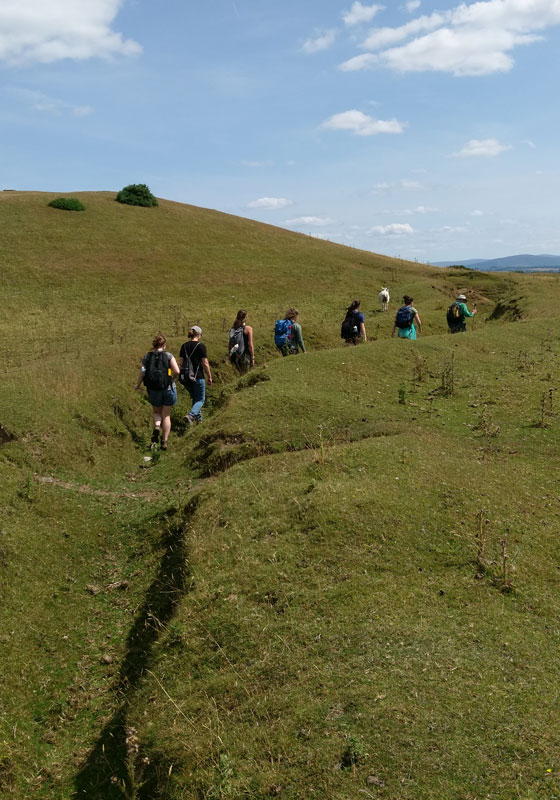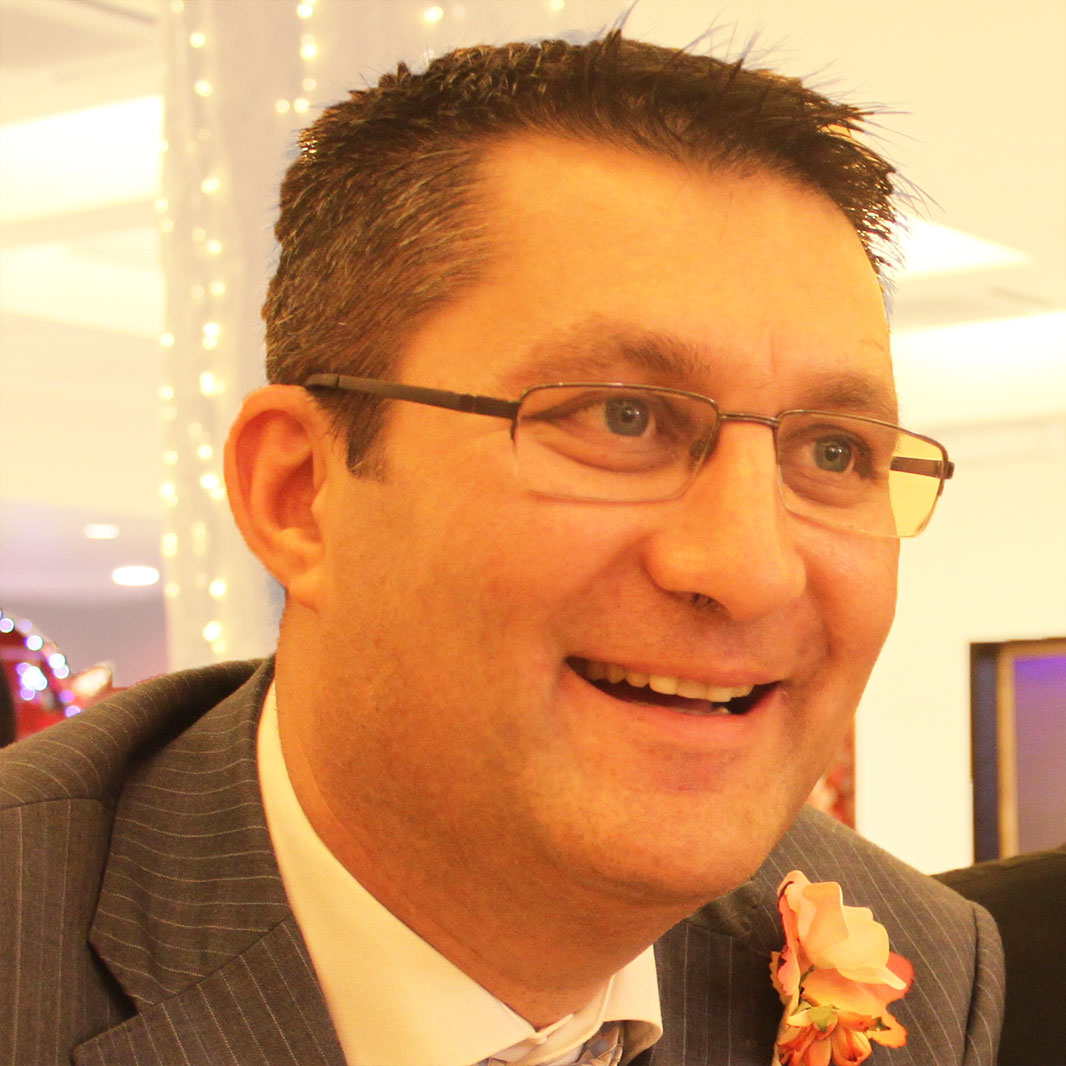Project Description
Overview
Throughout human history, people have been interacting with the natural landscape, seeking food, water, shelter, and resources with which to build a better life. Understanding the landscape, how it formed, and how it has been altered by humans is an integral part of the study of archaeology. This unique, teaching-focused program has been designed to give students an in-depth understanding of the natural landscape, from the underlying bedrock to the glacial landforms, from the overlying soils to the flora and fauna they support. With this knowledge, students will be equipped to study the interaction of humans with the landscape through the millennia. The program combines field studies with laboratory work to piece together two different landscapes in two distinct locations: Birr in the midlands and the Burren in County Clare on the West coast. Staying with local families in homestay accommodations, this program also offers deeply enriching cultural immersion, guaranteeing students a truly memorable experience.
This program is an introduction to Geology and Geoarchaeology. It is designed to present students with the fundamentals of field work and a taste for the rigor of field research, from the perspective of relating cultural heritage to the underlying landscape. Students looking for a longer and more in-depth introduction could consider any of our standard 4-5 week-long programs.
| Course Details | |
|---|---|
| Course Dates | June 9 – June 22, 2024 |
| Course Type | Environmental science, ecology, geology & geoarchaeology |
| Instructors | Dr. Stephen Mandal, Dr. Fiona McGowan & Prof. John Feehan |
| Credits* | 2 semester (3 quarter) |
| Apply By | April 1 |
| Fees Due By | Summer 1 (May 1) |
| Program Fees | |
|---|---|
| Tuition | $2,540 |
| Transcript Fee* | $300 |
| Health & Evacuation Insurance | $60 |
| Room & Board | $895 |
| TOTAL: | $3,795 |
Applications accepted on a rolling basis until program fills or final deadline above.
Instructors
The directors welcome emails and inquiries about the research elements of this project. More general information (tuition, health insurance, and payment schedule) can be found under the ‘Students’ tab above. Any further questions may be addressed to IFR staff. Additional details about research, course schedule, travel, accommodation, and safety can be found on the syllabus. Contacting the directors or the IFR office is encouraged and appreciated. It may help you determine if this field school is a good fit for you.
Testimonials
Having Dr. Feehan and Mandal as professors taught me so much. The program was well-rounded, educational, and very fun. It was great to hike around Ireland and learn so in-depth about it’s cultural and environmental past.
Steve was helpful, encouraging, and always engaging. He interacted with the students and asked John questions as well as being a brilliant source of information. John was amazing to learn from, he could answer any question about any aspect of Ireland and did so happily. This program is a great way to learn a variety of things (geology, ecology, archaeology, heritage) in the classroom, but mostly hands-on. [You will get to] see all parts of Ireland, not as a tourist, but as an expert. For educational purposes or for fun, this program was 100% worth it.
IFR is the perfect opportunity for first time travelers who dream of seeing the world but who would like to not take those first steps alone. I had such a great support system in Ireland. Whether it was Dr. Stephen Mandal, my homestay family, or my fellow peers — they all had my best interest at heart. My two weeks in Ireland were truly a time of self-discovery, especially following the events of 2020 and several months of unprecedented challenges. While learning of the magnificence of the Irish landscape, hiking boglands, and exploring castles, I finally felt I had time to reflect on who I was as an individual in that new and exciting space.
Payment & Student Fees
Application Fee: There is a $45 fee to submit an online application.
Deposit Payment: A nonrefundable $500 deposit is due within 3 weeks of program acceptance in order to secure your place. The remainder of your program fees are due by the deadline indicated under “Course Details”.
*Transcript Fee & Academic Credit Opt Out: If you wish to participate in an IFR field school without earning academic credits, you will not be charged a transcript fee.
For more information about payment, fees, and policies, please see details under our Payment & Finances and Withdrawal and Cancellation Policy pages.
Accommodations
With the exception of the extended field trips in the Burren, the students will be housed in homestay accommodation in the town of Birr, Co. Offaly (see schedule). Homestay students live with local families, and experience true home life in provincial Ireland. Students are to keep the accommodation clean and tidy at all times and to be respectful towards their homestay family and roommates. Students will walk (or be dropped to and collected from) a designated meeting point (normally Birr Square or Birr Community School). Breakfast and dinner will be provided along with a packed lunch. On weekends, students are encouraged to avail of their free time and explore Ireland. Food will be provided during extended field trips.
In the Burren accommodation will be in (single sex) shared dormitory style rooms in local hostels, with meals provided in a communal setting.


Travel Info
Natural disasters, political changes, weather conditions and various other factors may force the cancellation or alteration of a field school. IFR recommends students only purchase airline tickets that are fully refundable and consider travel insurance in case a program or travel plans must change for any reason.
General information for this program is below, but keep in mind we will discuss any updated travel information and regulations during the required program orientation, which could affect travel plans.
Students will be met in Birr, Co. Offaly. Since students will arrive on different flights at different times of the day, we will meet all students on Sunday June 9th (first day of arrival) at Johns Hall, our head office (eircode/zipcode R42Y927) at 8.30pm. Directions and travel information will be issued to all students once they are enrolled in the field school.
If you missed your connection or your flight is delayed, please call, text or email the field school director immediately. A local emergency mobile phone number will be provided to all enrolled students.
VISA REQUIREMENTS
Citizens of the US and Canada do not require visas to enter Ireland. You will need your passport to be valid for at least 90 days and will enter on a tourist visa. Citizens of other countries are asked to check the embassy website page at their home country for specific visa requirements
No other vaccinations are required for entry to Ireland but anyone working in archaeology in Ireland needs to have an up-to-date tetanus shot.
Student Safety
The IFR primary concern is with education. Traveling and conducting field research involve risk. Students interested in participating in IFR programs must weigh whether the potential risk is worth the value of education provided. While risk is inherent in everything we do, we do not take risk lightly. The IFR engages in intensive review of each field school location prior to approval. Once a program is accepted, the IFR reviews each program annually to make sure it complies with all our standards and policies, including student safety.
Students attending IFR international programs are covered by a comprehensive Health Insurance policy that includes physical illness or injury, mental or chronic conditions. No deductible and 100% of costs are covered up to $250,000. In addition, we provide Political and Natural Disaster Evacuation policy, which allow us to remove students from field school location if local conditions change. Our field school directors are scholars that know field school locations and cultures well and are plugged in into local communities and state institution structures.
Students attending IFR domestic programs (within the US) must have their own health insurance and provide proof upon enrollment. IFR field school directors are familiar with local authorities and if in need of evacuation, local emergency services and/or law enforcement will be notified and activated.
The IFR has strong, explicit and robust policy towards discrimination and harassment in the field. If students feel they cannot discuss personal safety issues with field school staff, the IFR operates an emergency hotline where students may contact IFR personnel directly.
Call (877-839-4374) or email (info@ifrglobal.org) if you have questions about the safety of any particular program.

































